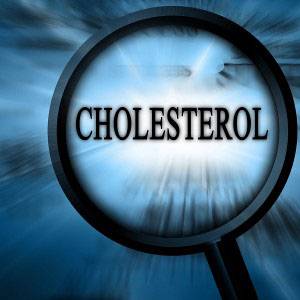How Communities Are Changing the Way We Think About Aging in..
8 Min Read

Yes - and humans alike, there are the good and the bad (or ugly). But judging is easy, unlike humans and easier to control. However, a spree must not set you going after the bad one full steam. Too much of it or not enough are equally risky. This is why a lot of heart-concerned people collapse. It’s mostly coronary heart diseases, attacks and/or strokes.
A lipid panel test – also called a lipid profile – gets you an accurate answer right away!
It’s a complete cholesterol test comprising multiple blood tests. They also test triglycerides in the blood. It helps you determine if you are at risk of atherosclerosis (plaque buildup on the inner surface of arteries, narrowing or blocking them). It is not necessary to be obese or overweight for a cholesterol balance turned awry; however, those with a family history of high cholesterol, heart diseases, diabetes and obesity, run a higher risk for cholesterol imbalance. Ideally, LDL (low density lipoprotein, the bad guy) must stay < 100 mg.
Heart disease is grim. So the diet must not be. A heart-healthy diet must be a hearty one and should help feeling normal and healthy. Those who still haven’t developed any shall keep the nasty complaints away for extra years enjoying these diets. Adding a dash of physical activities to go with the diets is a brilliant thought, but being 40-plus and/or showing signs of heart troubles calls for prior medical advice. The 30-minutes, moderately vigorous physical exercises, 5-days a week is not a Universal one. And breathing exercises! They are vital whether you are choosing yoga, aerobics or weights. Proper breathing helps the body to wring out the best from every movement, curl and stretch.
So as the first step, welcome some healthier fats. Animal-source fats in small quantities (10% max of total caloric intake) are absolutely necessary (your grudge is against trans-fats; like the margarine in which they fry the fast food or the commercial, baked goodies) and monounsaturated fats. That calls for some lean red meat (Bengal goat meat, for example) and goat fat, natural yoghurt (with live cultures) or milk curd, olive, peanuts and canola oil.
Omega-3 fatty acids are good for the heart, but the tinned salmon, mackerel or herring has more flavorings and preservatives than the Omega. Supplements – from a reputed manufacturer - are safer. Walnuts, almonds and ground flaxseeds also have it, but you need large quantities every day to fulfill the needs. It will lower LDL but won’t cause a scarcity.
Now, it’s cholesterol management, not complete cholesterol avoidance. Get this first. You must manage your cholesterol intake not allowing more than 300 milligrams a day, whether through the lean meat or eggs or the milk. It’s best to avoid grains but should you must, choose whole grains - for the bread, pasta, flour or the rice. A meat, fruit and vegetables is a better combo, including dried fruits, roots and seeds. Go Palaeo!
Not preferred unless adequate dietary control and regular exercises fail; or, there’s present an elevated risk for heart diseases and stroke due to smoking, too many saturated fats, trans fats or just plain cholesterol eating or physical inactivity. Those suffering from familial hypercholesterolemia (hereditary disease) also need it. After all, a double dose of cholesterol is not treatable by diet alone.